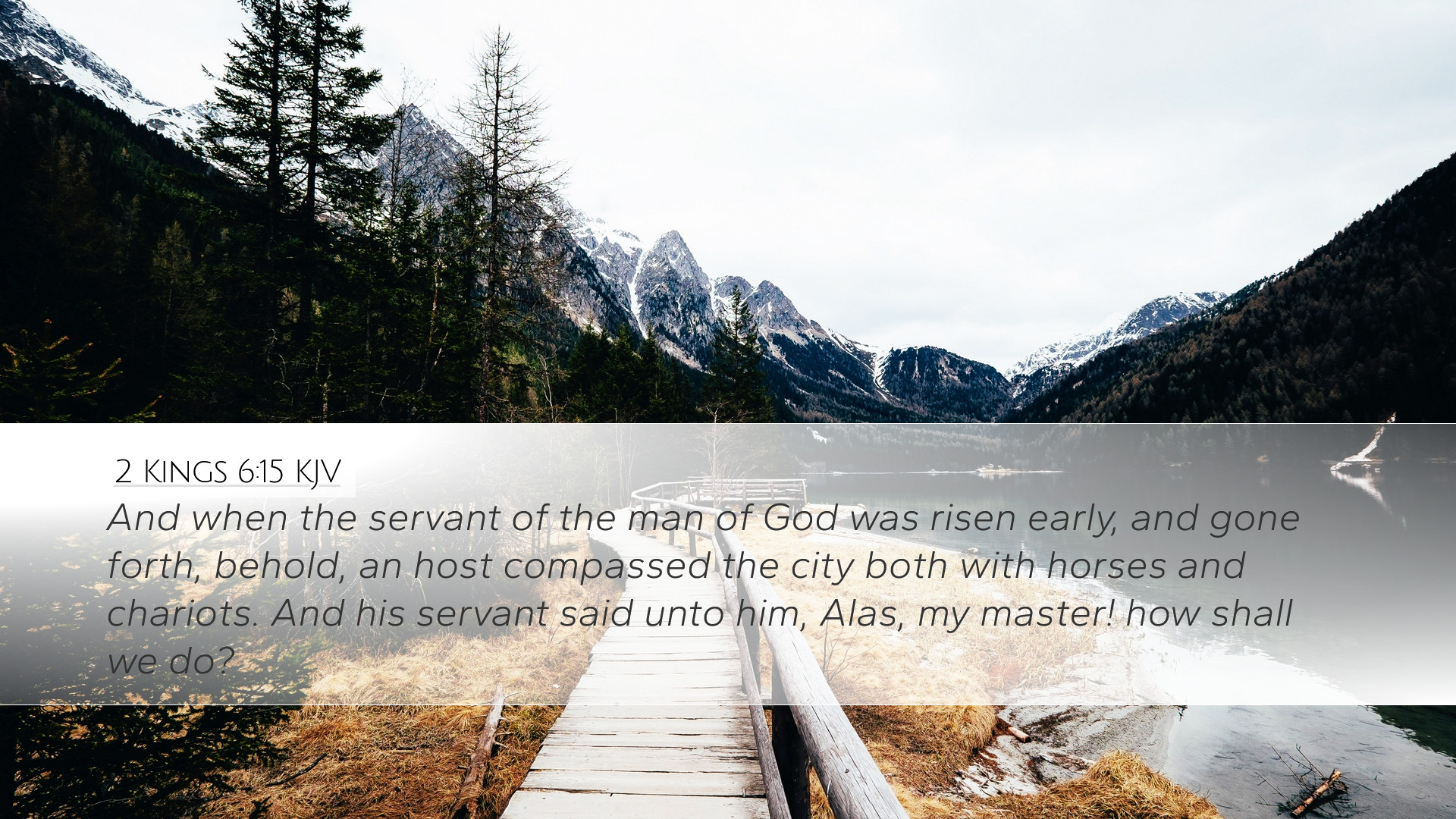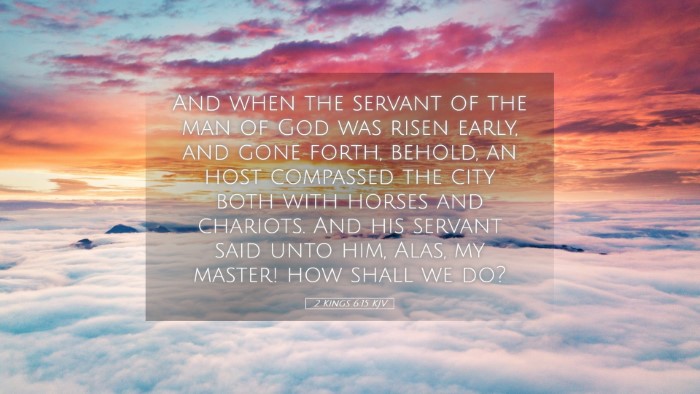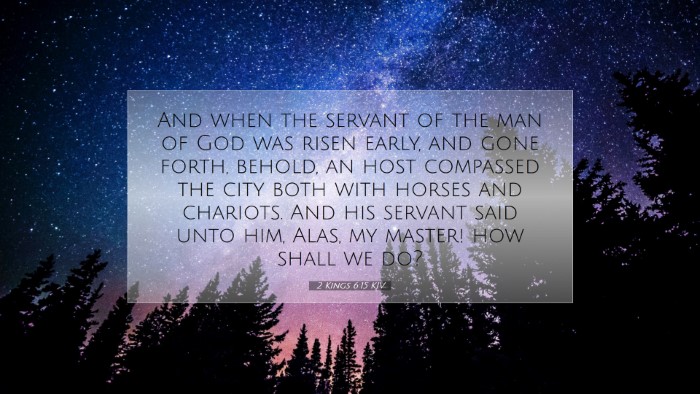Commentary on 2 Kings 6:15
Verse (2 Kings 6:15, ESV): “When the servant of the man of God rose early in the morning and went out,
behold, an army with horses and chariots was all around the city. And the servant said, 'Alas, my master! What shall we do?'”
Introduction
This passage captures a moment of profound anxiety for Elisha's servant, set against a backdrop of
divine providence and spiritual perception. The public domain commentaries of Matthew Henry, Albert Barnes,
and Adam Clarke offer insights that illuminate the layers of meaning within this text.
Contextual Analysis
Historical Background: The context involves the ongoing conflict between Israel and
Aram (Syria), where Elisha had been foiling the plans of the king of Aram, which heightened
tensions significantly.
Matthew Henry emphasizes the importance of recognizing God’s intervention in
affairs, as Elisha’s knowledge of the king of Aram’s plans was itself a sign of divine favor upon Israel.
Barnes elaborates on the military crisis faced by the servant, articulating the servant’s
fear and sense of helplessness when faced with overwhelming odds. This fear is a relatable aspect of human
experience when confronting insurmountable challenges.
Theological Reflections
This verse opens a window into the nature of faith and perception. The servant, upon awakening, is
confronted by a visible manifestation of danger—an army surrounding them. Here, the writers provide
contrasting perceptions of reality.
-
Divine Reality vs. Physical Reality:
Adam Clarke states that the servant's view is limited to the physical manifestation
of danger, leading to despair. His perception reflects a lack of insight into the unseen spiritual
resources available to him. This indicates a crucial aspect of faith—seeing beyond immediate
circumstances.
-
The Role of the Prophet:
Elisha, in contrast to his servant, embodies a profound peace and confidence rooted in his faith.
Henry suggests that the prophet's calmness can be attributed to his understanding of God’s sovereignty
and the divine army that encamps around those who fear Him.
Practical Applications
Faith in Crisis: The fear exhibited by Elisha’s servant is a reflection of the common human
experience when facing unexpected crises. This narrative invites readers to explore their responses to danger.
-
1. Encouragement in Times of Trouble:
Just as the servant expressed despair and sought a solution, individuals are encouraged to bring their
fears and uncertainties to God, trusting in His higher perspective.
-
2. Seeing Beyond Physical Surroundings:
To acknowledge the presence of God’s hand amid trials is central to overcoming fear. Reflecting on
Clarke’s comments, one’s perspective should shift from the tangible threats of life to the
invisible realities of faith where God’s forces are ever in action.
-
3. The Peace Offered by God:
Elisha’s response and the resultant divine intervention illustrate that God offers peace in chaos.
Followers of Christ are reminded that they are not alone; His presence is a consistent source of comfort.
Conclusion
2 Kings 6:15 presents a poignant reminder for believers regarding the significance of spiritual perception
amidst life’s battles. The fear of the servant serves as a foil to Elisha’s unwavering faith, illuminating
the need to trust in God’s providential care and power. As Matthew Henry, Albert Barnes, and Adam Clarke articulate,
this narrative encourages profound trust and recognition of God's providential operations, reminding the faithful
of the invisible resources available to them in moments of trial.


